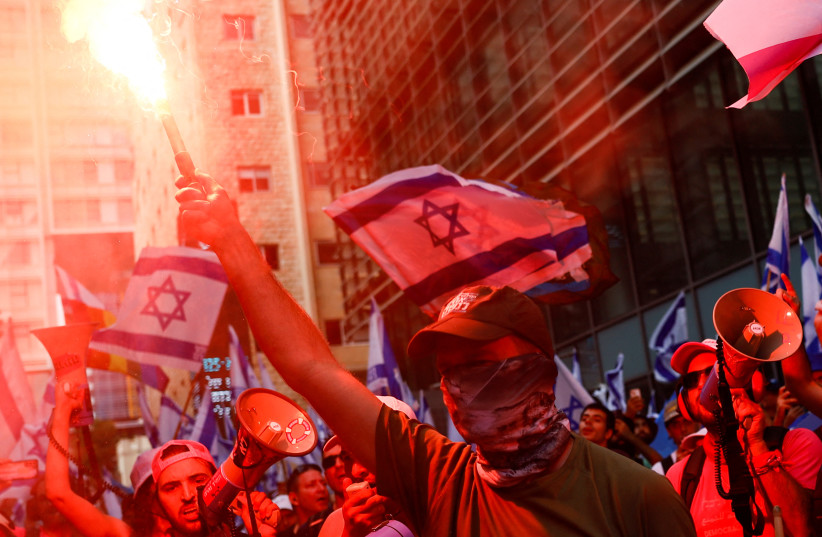Pro-Iran media on Sunday feasted on Israel’s apparent crisis, focusing on the protests and internal divisions in Israel. Iran’s pro-regime media has for months sought to highlight the protests sweeping Israel, portraying them as an existential crisis for the “Zionist regime.”
Iran, which usually boasts of threats to Israel, not believes the real threat is internal. No longer does Iran have to pretend Israel will collapse from conflict, it now believes Israel may collapse internally, and therefore all Iran has to do is sit by the proverbial river and wait.
Iran’s media on Sunday said that Iran’s foreign ministry spokesman Nasser Kanaani had referenced reports that Prime Minister Benjamin Netanyahu was in hospital. The Iranian ministry spokesman then claimed that “the crisis in the heart of the Zionist regime is deeper than the crisis in the heart of its prime minister,” the report at Tasnim news said. Tasnim is considered pro-regime and close to the IRGC in Iran.
Iran's watchful eye on Israel
Iran is clearly paying close attention to developments in Israel. The regime noted through its media that protesters had reached Jerusalem and that they had “set up their tents in front of the Zionist Knesset building. The opponents have threatened to prevent the holding of the session of the Israeli Parliament on Sunday and Monday in order to review and approve the bill to reduce the powers of the judiciary.”

Iran denies that Jerusalem is the capital of Israel, but the pro-regime media in Iran had to admit that the protesters had marched to Jerusalem and that Israel’s government is in Jerusalem, a tacit acknowledgement that Jerusalem is the capital of Israel. Even in Tehran’s zeal to condemn Israel, it has to reveal some of the realities on the ground.
In another report at Fars News the report looked at other regional media reports that “the current unrest could lead to civil war and have a real impact on the state of the occupation regime's military institutions.” This report looked at potential red lines that could be crossed in Israel, speculating that “political assassinations and the occurrence of a state of rebellion in the Israel army” could lead to civil conflict.
Al-Mayadeen, which is also considered pro-Iran, ran a headline Sunday suggesting that Israel’s prime minister and his coalition is concerned about “Netanyahu's surgery... and warnings of a military coup against him.” This report also focused on reports that “10,000 reservists from 40 units announced leaving service , while [Israel channel 13] reported that the number of refusals to serve in the Air Force will increase.”
Pro-Iran media and Iran’s own regime media often have message discipline. This means that the region has a message and then that message trickles down to Iran’s own media, the pro-regime media ecosystem and then the regional pro-Iran media. This means that often what Iran is thinking is very transparent, because it has a top-down approach to broadcasting its views and propaganda.
Sometimes this can also serve as a warning or predictor of the regime behavior. The regime thinks Israel is being challenged internally. Iran therefore has increased tensions on the northern border and sought to increase threats from Jenin and Hamas. A recent report at Newsweek also warned of Iranian threats from Syria where Iran has local proxies.
